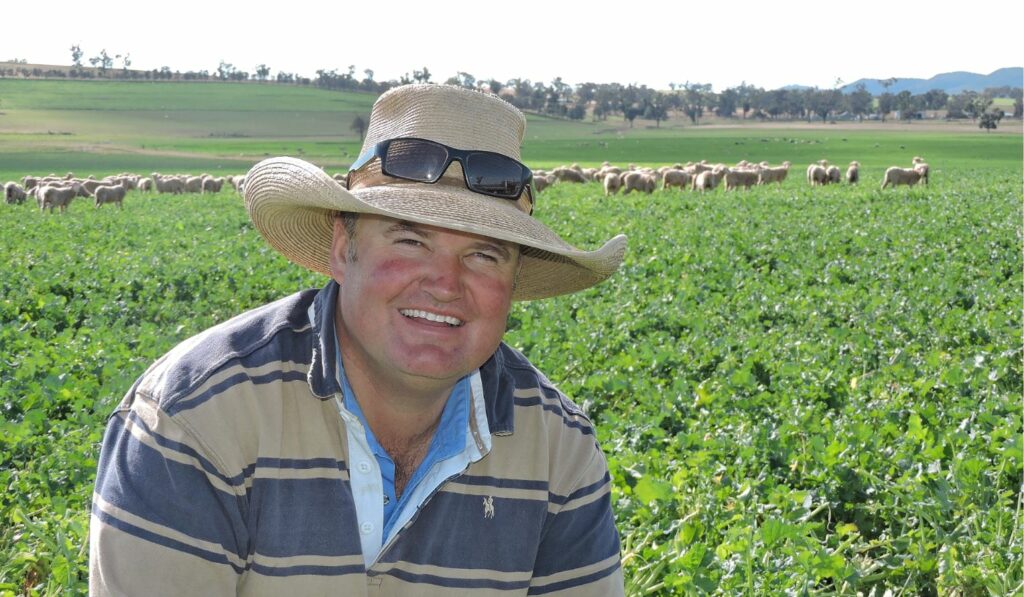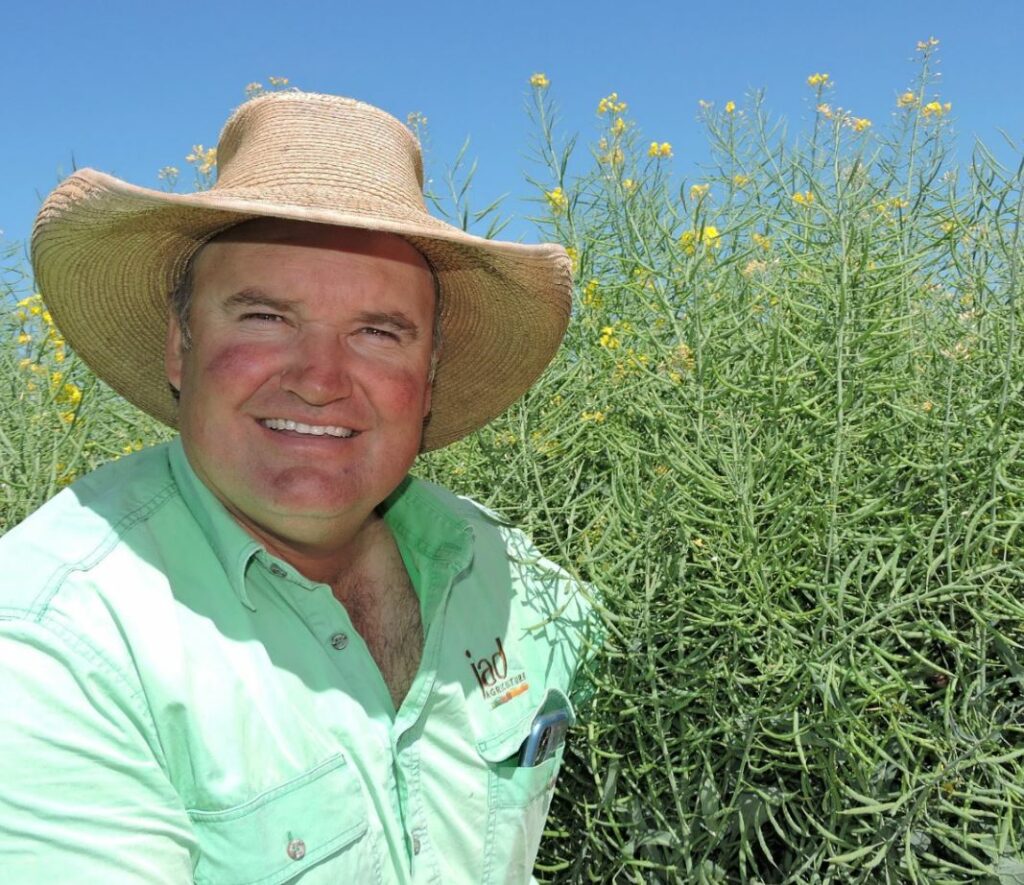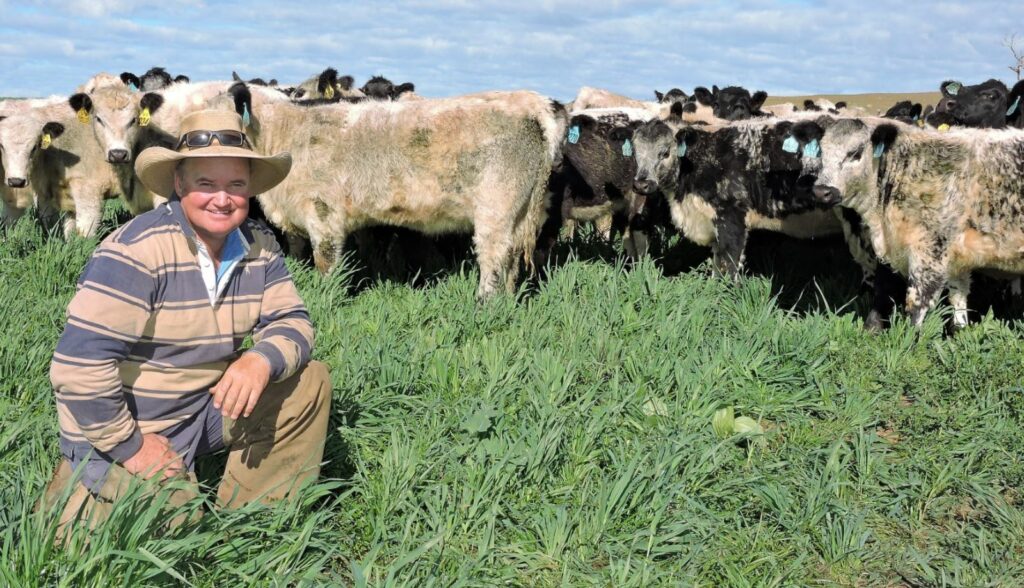Hyola 970CL delivers outstanding results for NSW lamb trading operation
February 8, 2021SPOTLIGHT ON HYOLA 970CL
Introducing Pacific Seeds Hyola 970CL grazing canola has revolutionised Justin and Amy Dickens’ lamb trading enterprise at Yeoval in Central West NSW, with “second-to-none” animal performance.
Stocking rates of up to 120 DSE per hectare were required to best manage the extraordinary growth experienced with the 180 hectares of grazing canola during the district’s favourable 2020 Autumn/Winter growing period.
Justin and Amy’s property, “Greenvale”, spans 1020 hectares in the Bournewood district, east of Yeoval.

Justin and Amy purchased 5770 crossbred and Merino lambs in March/April 2020 for $160 per head, held them for an average of 10 weeks, and sold them at an average of $235/head.
“The liveweight gain on these lambs worked out at an average of 285 grams a day for their entire stay, peaking at well over 300g/day, which we were impressed with over that length of time and through our coldest months,” Justin said.
The lambs achieved a net grazing return of $1830/ha, with enterprise direct costs deducted.
Favourable Spring conditions enabled Justin and Amy to harvest 165ha of canola, which yielded an average of 2.47 tonnes a hectare, for an additional grain income of $1418/ha.
Growing/harvesting costs totalled $450/ha, leaving a net return from grazing and grain of $2798/ha.
“This equated to 34% of land value in one crop, which is something we have never experienced in our short time in agriculture,” Justin said.
“We were able to get our annualised stocking rate in a 10-week period of grazing, and were still able to obtain a grain harvest on top.

“Another attraction of the Hyola 970CL grazing canola is the ability to control broadleaf and annual grass weeds in-crop, allowing us to clean up paddocks to sow down to long-term perennial pastures.
“We first grew 970CL in 2019, which was a much drier year, and it still proved itself as an exceptional plant at utilising any available soil moisture and even though we didn’t get a harvest in that first year it had an extended growing season and certainly served its purpose.
“Seasons like 2020 don’t come around very often, so we were glad to have 970CL in the mix to help us play financial catch-up after three years of drought.”
Justin and Amy bought their first property in 2012, after previously holding farm management roles, and have quickly become known for being proactive and willing to try new things to improve the profitability of their business.
They established their Speckle Park cattle stud, JAD Speckle Park, in 2016, and have since transferred more than 1000 embryos from as far as Canada and New Zealand to grow their stud to be one of the country’s largest and most successful commercially-focussed Speckle Park studs, with an annual on-property bull and female sale each March.
For cattle grazing, the Dickens last year grew 150ha of Warego oats – a variety that was marketed by Pacific Seeds some years ago as being well- suited for cattle grazing and hay production, being more erect in nature.
